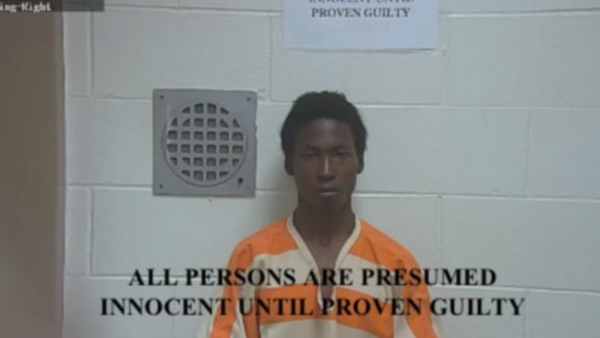Tech stabbing suspect ruled fit to stand trial, despite claims he 'hears voices'

The man accused of stabbing four women on Louisiana Tech University campus has been found mentally fit to proceed to trial, despite claiming he “hears voices.”
At a sanity hearing in 3rd Judicial District Court Tuesday, ad hoc Judge Chet Traylor denied the recommendation of two mental health experts that Jacoby Johnson be admitted to a psychiatric hospital for further evaluation, instead ruling that Johnson is mentally competent and must stand trial.
Johnson, a 23-year-old Tech student, faces one charge of second-degree murder and three charges of attempted second-degree murder for the Nov. 13 stabbing attack outside Tech’s Lambright Sports & Wellness center that led to local artist Annie Richardson’s death and left three others injured.
Psychiatrist Dr. Dennis Kelly, Jr. and psychologist Charles Vosburg, both of the Eastern Louisiana Mental Health System, examined Johnson at the Lincoln Parish Detention Center in December to evaluate whether he has the mental capacity to stand trial.
Kelly and Vosburg testified Tuesday that Johnson told them he suffers from “ongoing auditory hallucinations.”
Johnson also allegedly “tore up” his LPDC holding cell in a fit of rage and broke his glasses on Nov. 18, the day of Tech’s graduation ceremony, because he was “upset” that he wasn’t able to graduate, according to testimony from LPDC nurse Jennifer Plunkett.
Kelly and Vosburg said background reports on Johnson that were provided to them show Tech police received as many as 14 calls from Johnson, his roommate and his landlord throughout his college career, expressing concerns that Johnson was “hearing things.”
In the days after the incident, Tech and Ruston police said they’d had minimal prior contact with Johnson, and nothing that would indicate concern.
According to Lousiana’s criminal code, mental incapacity exists when, as a result of mental disease or defect, a defendant presently lacks the capacity to understand the proceedings against him or to assist in his defense.
Kelly and Vosburg testified that while Johnson could understand the case against him, they were unable to determine if he really was hearing voices, or if he was lying, and therefore couldn’t be sure he would able to assist in his defense.
“We would obtain greater clarity on his ability by sending him to a forensic psychiatry facility,” Vosburg said.
They recommended Johnson be committed to the Feliciana Forensic Facility in the Eastern Louisiana Mental Health System in Jackson, where constant supervision would be able to determine if he really does experience hallucinations or made them up.
Plunkett testified that when she checked in on Johnson daily after his admittance to the jail and offered him opportunities to discuss any issues, he never brought up hallucinations, and the graduation incident was the only time he ever exhibited concerning behavior.
Traylor ruled Johnson fit to proceed with trial, arguing the mental health experts couldn’t say one way or another if Johnson was mentally incompetent, and he would have to be declared such before he could be committed to a facility.
“And the mere presence of mental illness does not bar prosecution,” Traylor said.
Johnson’s attorney, Rick Candler, said he plans to appeal the ruling. The court set a pre-trial conference for Johnson on March 19.

